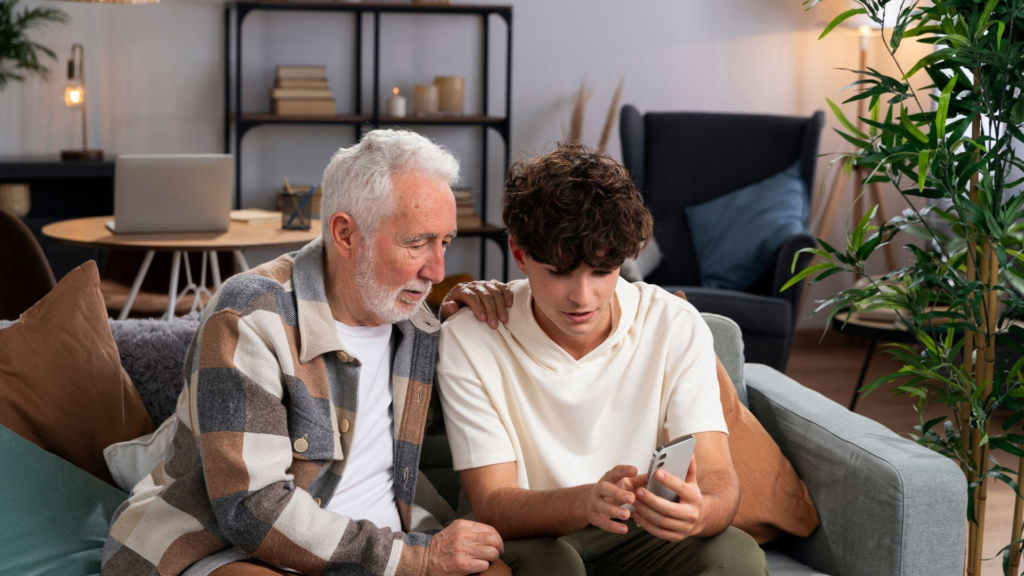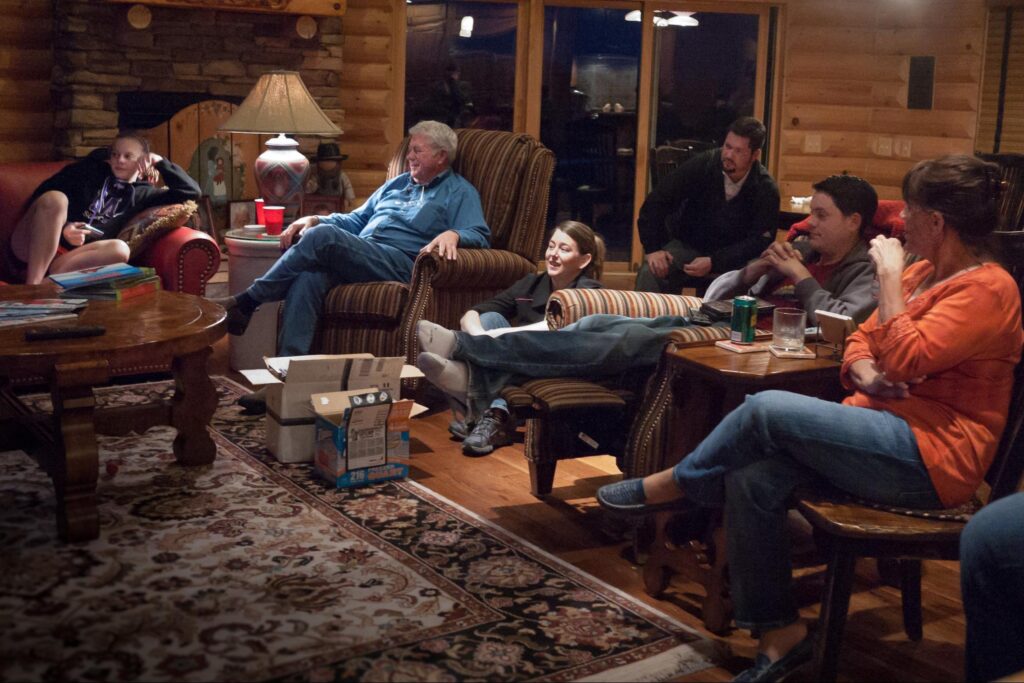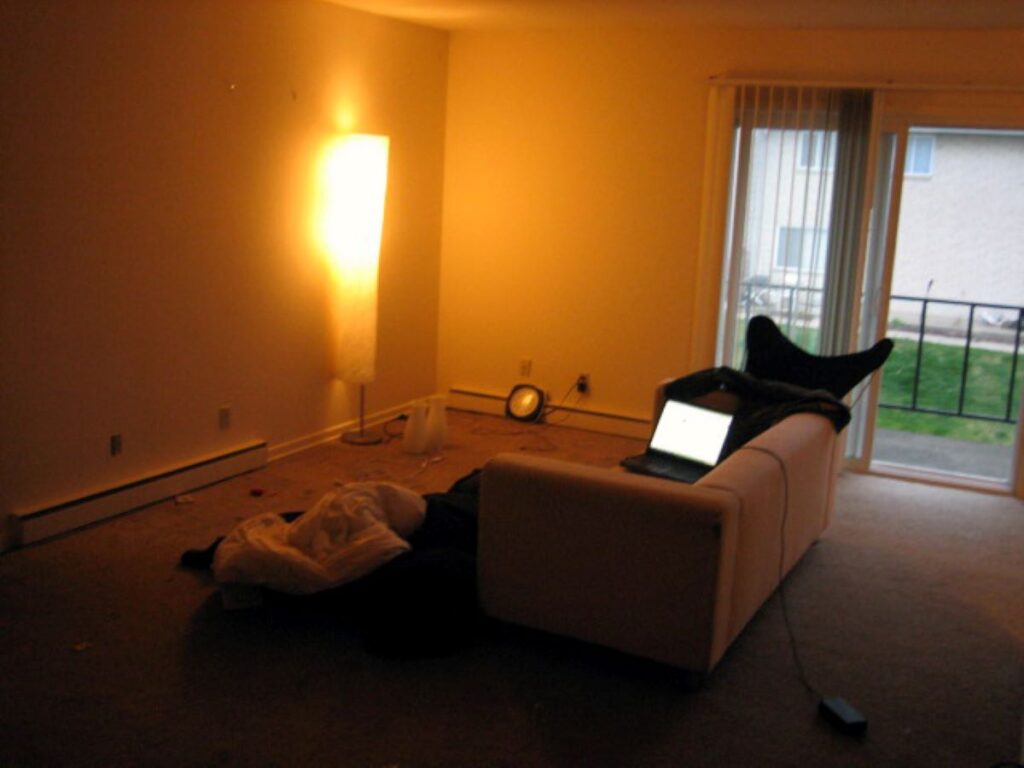The personal economies of Gen Zs who are working age cannot be compared to those of their peers in the 1960s or 1970s.

The average Gen Z adult struggles to survive the tidal wave of inflation, lives from paycheck to paycheck, and would give anything to ease their economic woes.
Youths Are Returning Home
So, these young adults gladly jump at the offer of their parents to move back in after college.

Interestingly, this trend is fast becoming a fad. In the UK alone, over 621,000 adults are reported to be living with their parents. In the US, the US Census Bureau suggests that the number of young adults living with their folks has spiked by an alarming 87% in the past two decades.
Not Near Plan of Getting Personal Accommodation
To make matters worse, 41% of young adults recently surveyed by RentCafe are not working towards getting an accommodation of their own in the next two years.

Real estate analysts who have noticed the trend blame it on instabilities in the housing market. Here is how. As of 2022, Moody’s found that most renters in the United States spend about 30% of their income on accommodation alone.
Rent Is An Income Gulper
According to government benchmarks of estimated expenses, young adults spending 30% of their income on rent is financially burdening. Comparing the average amount Gen Zs, millennials, and baby boomers would spend on rent in their lifetime, HotPads found that Gen Zs have to contend with the highest rents.

After factoring in the influence of inflation, HotPads found that Gen Zs would spend $24,000 and $77,000 more than millennials and baby boomers, respectively.
Having Their Place Make Gen Zs Broke
This generational surge in rent prices has caused an obvious strain on the young generation, that is, for those who can even afford rent.

Harris Poll and Bloomberg News conducted a collaborative survey in 2023. The survey polled 4,100 adults and discovered that 70% of adult Gen Zs affirmed that they would struggle financially if they decided to move out of their parent’s house.
Some Financial Freedom for Gen Zs Staying At Home
One of the Gen Zs spotlighted during the survey, 24-year-old Bethany Clark, said she can save because she stays with her parents.

Clark explains the logic of her decision not to move out by saying, “I work in the same area as where my family lives. I can’t justify moving down the road and paying extortionate rent just for a bit of extra space.”
Rent Is Fleeting, Buying A Home Is Evasive
If Gen Zs struggle to afford rent, it is easy to imagine how far out of their reach homeownership would be. Of course, some outliers bought their first homes at a very young age.

However, the National Association of Realtors found that the average age of young homebuyers was 36 for the 2023 financial year.
Gen Zs Don’t Mind Living With Their Parents
According to a 2022 Freddie Mac survey, one out of every three Gen Z said they don’t see themselves ever buying a house.

Interestingly, Gen Zs are not the first generation to adopt this lifestyle. Right after the Great Recession, many millennials also favored staying with their parents.
The Public Are Not Too Critical
Public opinion now favors the idea of young adults living with their parents indefinitely. Yes, they get to cut down on living expenses and all. However, that decision will inevitably haunt young adults.

Getting exposed to financial uncertainties is a passage rite into adulthood. Also, research has established that staying with your parents for too long has emotional and economic repercussions.
How Global Financial Crisis Impacts Youths’ Independence
The history of global financial crises and the economic waves they generate illustrate that more young people tend to stick around their families during such periods. On the contrary, youths often affirm their independence quite early during seasons of affluence.

Towards the end of the Great Depression, in 1940, research found that 48% of young adults (18- to 29-year-olds) lived with their parents. That record was not broken until 2020.
Millennials Were Once Youths
During the 2010 recession, millennials were still young adults, and 44% lived with their parents. There was widespread slur targeted against this category of youths at the time.

It was so bad that young millennials were tagged as lazy and addicted to technology. Mainstream media also caught on and rubbed the inability of these young millennials to afford a living space in their faces.
Gen Zs Are Evading Social Criticism
However, people have been more forgiving of Gen Zs for their dependence on their parents for accommodation. Mainstream media are touting the acclaimed benefits of not leaving home.

Unfortunately, Gen Z adults are buying into that narrative, the idea of buying or renting their own living space, without considering the cons.
Gen Zs Say Their Stay-home Choice Is Smart
In the Bloomberg-Harris survey, 40% of polled young adults feel comfortable living at home. Some even ruled their decision to do so as a smart choice.

Also, 87% of these young respondents think it inappropriate to be judged for their decision to stay at home. Young people like Clark said they have not experienced any criticism.
Gen Zs Not Renting Affects the Economy
Clark said of the public opinion about living at home, “When the cost of living and housing is so high, everyone gets it.” However, not everyone buys that argument.

An October 2021 Pew survey found that about 33% of Americans feel that the incidence of young adults staying with their parents is bad mojo for the economy.
There Are Caveats Down the Lane
However, strangers’ opinions about the moral validity of young adults staying at home are of little consequence. Nonetheless, the long-term implications of such choices may have economic consequences.

Urban Institute issued a report in 2019 that infers that young people who stay at home will end up paying for this choice.
Too Much Safety Makes You Soft
The Urban Institute report suggests that young adults (25 to 34 years old) are significantly less likely to become homeowners 10 years later if they are staying with their parents.

The study also found that 32% of young adults who stayed with their parents still struggle to live independent lives 10 years later. On the contrary, most previous renters easily caught on to independence.
Hazards and Uncertainties Can Fuel Success
Young people who initially lived with their parents and eventually became homeowners were not necessarily better off escaping the dependence trap.

The Urban Institute study reported that home values remained consistent relative to their home-boarding days. Both boarders and renters ended up with homes averaging $205,000 in value.
Extended Periods of Dependence May Cause Depression
Young adults may have emotional crises following their decision to stay with their parents. They are at a pivotal point in developing their self-identity and may take a mental bashing from their parents’ inescapable condescension.

For example, 20-year-old Sarah Obutor lamented, “They still sort of see you as a child, no matter how old you are.”
Am I Good Enough?
Some young adults may feel inadequate after living a tangible portion of life under their parents’ roof. Feeling stuck with your parents when some of your peers already have houses of their own can be emotionally disturbing.

A 2017 report revealed that young adults who were forced to return home tend to exhibit depressive tendencies.
Giving Up Your Liberties
Of course, adults who have reverted to staying again with their parents have once had a taste of independence. So, many people in this category try to enforce some of the boundaries they enjoy from living in their personal space.

However, such liberties may be challenging to exercise when the house has limited space. Frictions are inevitable in such a scenario.
Better Off to Plunge Into Deep Financial Uncertainties
When young adults rent or buy their living space, they enjoy the emotional satisfaction of independence. Yes, they may not have steady savings or enjoy all the amenities of their parents.

So, beyond saving the amount you would have spent on rent, there’s almost no emotional or motivational benefit of living at home.
Living In Psychological Confinement
A 2022 study affirmed this postulation as it found that young adults who returned to their parent’s homes during the pandemic felt emotionally handicapped.

Obutor, who had a similar experience said, “You can’t do all the things that you would want to do even though you are an adult.” The random adult decisions you took while staying alone, like throwing a party or having a wine and cheese night, are no longer feasible.
Living At Home Can Be Quite Demotivating
The longer Gen Zs put off major life milestones like getting their first job, renting or buying a living space, and having their first kid, the more inadequate they may see themselves. Unfortunately, no one can discredit you more than you do yourself.

So, in the end, the pressure piles up and burdens the emotions and mental health of the concerned party.
A Psychology Expert Speaks
Jeffrey Jensen Arnett, a professor of psychology at Clark University, pointed out a shift in the concept of adulthood, particularly among Gen Z adults.

He said, “Your 20s used to be the time when you committed to marriage or raising young children. Now those responsibilities don’t come for most people until almost a decade later.”
Gen Zs Are Not To Blame
Arnett proceeds to clarify that this situation is not entirely the fault of Gen Z adults. Instead, he said times have changed and most of them just can’t help it.

Most of these young adults unintentionally stay at home, and it is not part of their independence plan. On the contrary, many have been boxed into a corner, which they must first struggle to survive before crawling out.

